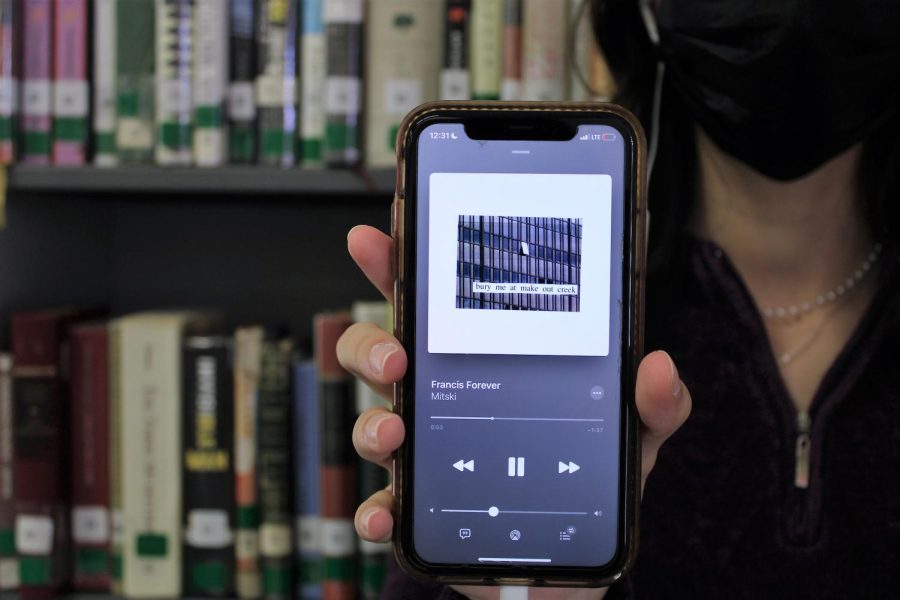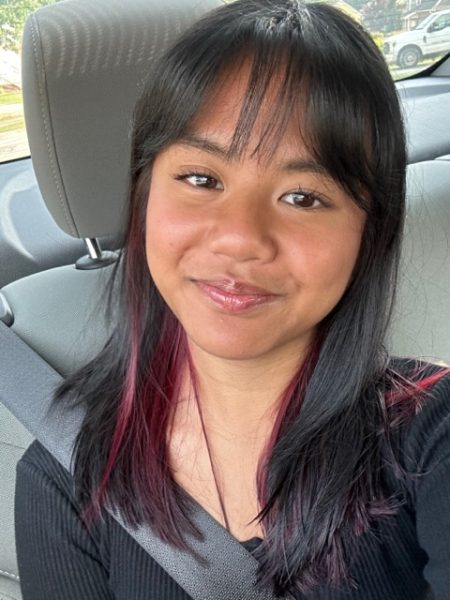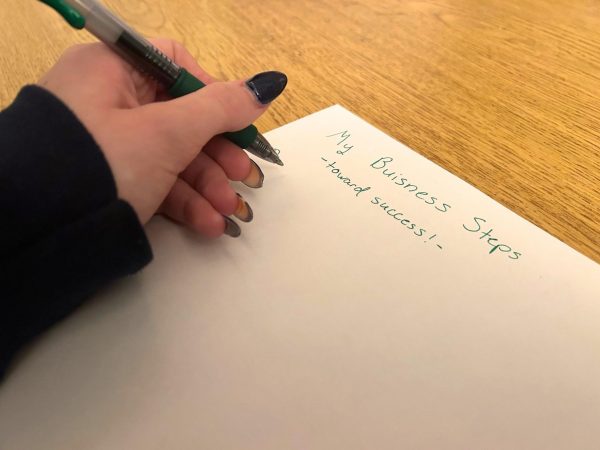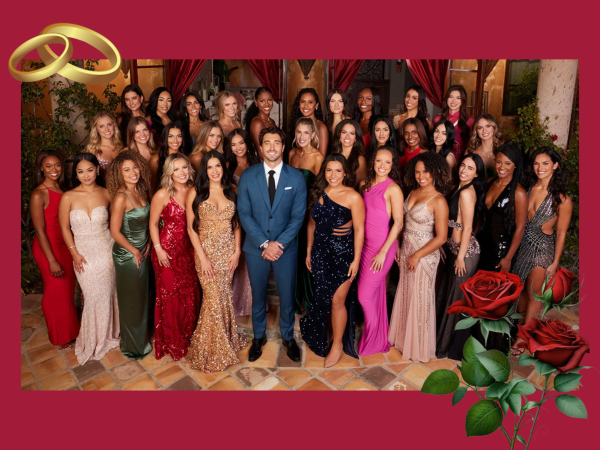Asian-Americans’ experiences explained through music
Asian artists now make their mark in the music industry where they face underrepresentation. Coming in with catchy tunes and melodic lyrics, they contain heartfelt words of childhood experiences and relatable situations. Their musical introductions to the media can help Asian Americans find representations and acknowledge that they do not face their struggles and experiences alone.
October 10, 2022
Within the music industry, Asian artists remain underrepresented. Now, musical artists want to change that. Serious issues and talk of identity in the Asian community find their way into song lyrics and catchy tunes. Using their voice for expressing relatable childhood experiences and struggles with identity brings importance to their representation in the media. Artists like Mitski and Rina Sawayama look back on their experiences to create lyrics Asian Americans relate to. Meanwhile, singers like Niki address the struggles of the experiences of an immigrant caught between two worlds, putting her feelings with a melody.
Mitski
Japanese-American artist Mitski made her debut in 2012 with the release of her self-released album, “Lush”. Since then, she has toured in several countries, including her recent “Laurel Hell” visiting various cities in the US. Her songs have become trendy over the years with songs like “Nobody” and “Washing Machine Heart”, along with her message embedded in the lyrics. She interprets her identity through her words in her music and the relevance to her own experiences as an Asian-American. One of her songs “Your Best American Girl” sings about the internal conflicts of a person in a relationship with has contrasting culture and experiences from their counterpart. Specific lyrics such as, “And you’re an all-American boy, I guess I couldn’t help trying to be your best American girl” interpret as the struggle trying to assimilate into a partner’s culture and leaving their own culture behind, a problem minorities can relate to while in relationships.
“I think to explain Mitski, she just makes my feelings validated. They’re [her music] easy to relate to,” junior Maykayla Fore said.
Niki
Indonesian-born artist Niki began her music career by releasing two singles, “See U Never” and “I Like U” under American music company 88rising. Since then, she has created music for the soundtrack of Marvel’s first Asian superhero in “Shang-Chi and the Legend of the Ten Rings”. With her music, she seeks to change the underrepresentation of Asian artists in the media.
“I never really felt like there was anybody who looked like me, who correctly represented me, and so I just feel like I want to be that for little kids that look like me, talk like me, or are from my hometown,” Niki said.
Her song, “Split”, depicts her feelings about moving to America from her home country and conforming to American society and culture. Asian immigrants can relate as exposure to new environments creates difficulty in adapting and experiencing homesickness. Struggle within two cultures exists as she sings an experience caught between two cultures both mentally and physically. Her heartfelt emotions intertwine with the Asian community and immigrating to the US.
“I feel that Niki has helped to bring awareness to Indonesian culture and using the platform she has to promote our culture makes me proud of my culture. And I’m not sure about how everyone else feels but I feel that Niki and 88rising overall have brought a positive impact on Asian American culture and celebrating and being proud of who we are,” junior Isabella Sutjiawan said.
Rina Sawayama
Sawayama tackles serious issues in her music. Her identity as Japanese-British still addresses conflicts all types of minorities can experience and relate to Asian-Americans as well. Her personal experiences embed themselves in her music and also mentions racism she faced while studying at Cambridge University.
Like Niki, she advocates for more Asian representation in the media. She seeks to break the stereotypes and misrepresentations of Asians in society, interpreting messages through her artistic music videos. Her song, “STFU!”, shows her receiving microaggressions and comparison to Asian stereotypes from her white date and ultimately becoming a vengeful spirit. With this interpretation, she takes on the angry feelings Asians feel when compared to stereotypes and allows the knowledge of these feelings to an audience.
Other songs like “Dynasty” and “Paradisin” expose family dynamics and intergenerational trauma from her own family. Immigrant parents or those with immigrant parents face the concept of the cycle of intergenerational trauma but rarely address the issue. She breaks the stigma and dives into the conversation, providing refreshing takes on internal stigma.
Through music, Asian artists from different backgrounds share their own feelings and experiences artistically. Those elements resonate in the groups of people especially the Asian American community, allowing them to see themselves through song lyrics. The representation offers exciting emotions seeing people like them on the big screen.


















